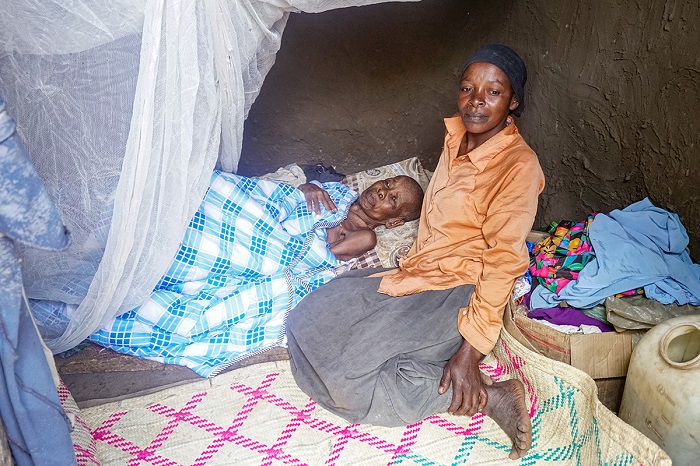By Brian Nambale & Ezra Tumusime
As we commemorate World Refugee Day 2023 today (June 20), Uganda is among the many countries that has many refugees majority of whom is a result of its Landlocked-ness, war, insurgencies and East African regional corporation status. Specifically, war and violence in South Sudan and the Democratic Republic of the Congo, and associated economic crisis and political instability in the region are the recorded causes.
It has been noted that Uganda Hosts over 1.8 million known refugees and is estimated to have about 500 who at times use unrecognized entry points in the country However according to the Office of the Prime Minister’s (OPM) Biometric Identity Management System (BIMS), Uganda refugee hosting country with over 1.5 million refugees and asylum seekers registered as Africa’s largest number.
Uganda has been hosting refugees for several decades. The first influx of 100,000 refugees in the West Nile region happened between 1983–1994 in Arua district. Between 1986–1994, an estimated 210,000 Sudanese refugees were settled in the districts of Arua, Moyo and Adjumani in the west Nile region and recently Kiryandongo in Bweyale which hosted over 73780 refugees by 2021. The settlement is dominated by refugees from South Sudan.
In 2016, Uganda was reported to be hosting 646,465 refugees in refugee settlements and urban areas from Burundi, the Democratic Republic of Congo and South Sudan. By May 2021, the refugee and asylum population in Uganda was placed at 1,494,505 with the Democratic Republic of Congo, and South Sudan as the main contributors. 3 Of this number, 1,471,990 are refugees while 22,515 are asylum seekers.
Four Women and children constitute the highest number 1,205,495 (81%) while the elderly are 41,507 (3%).5 Of the total, females total to 769,939 (52%) while youth total to 352,526 (24%).6 The total number of households for the refugees are 375,715.7 Those who live in settlements are 1,401,776 (94%) while those living in urban areas account for 92.729 (6%).
Like any other persons refugees have their human rights and Uganda has a progressively been enabling legal and policy framework especially the Refugee Act of 2006 that facilitates the enjoyment of rights and freedoms of refugees and asylum seekers including movement and employment, access to education, health and courts, ownership and transfer of property, right to associate though exclusive of political actions, rights of children and women.
This framework is in line with the Geneva Convention relating to the Status of Refugees, 1951, the OAU Convention Governing the Specific Aspects of Refugee Problems in Africa, 1969, Convention on the Elimination of All Forms of Discrimination against Women and the Convention on the Rights of the Child. Uganda in 2019 also adopted the Data Protection and Privacy Act which protects the privacy of the individual.
All these rights are important however Health is fundamental and Palliative care is key in all health services with the general challenges our healthcare system faces of understaffing, drug stockouts, and lack of available specific investigative services like histology poor referral system among others in this era when HIV/AIDS, Cancers and Non-Communicable Diseases(Diabetes Hypertension) are on the rise.
Palliative comes from the Latin word, palliare, which means “to cloak.” The word’s origins provide clues about the role of palliative care. Imagine an extra layer of comfort and protection shielding you from the harms associated with illness. This support is what palliative care is all about.
Palliative care is not the same as end-of-life (hospice) care because Palliative care refers to relieving the symptoms of an incurable medical condition. Its focus is on easing stress and improving overall quality of life. Unlike hospice which people often associate with end-of-life care — palliative care can benefit people of any age and at any stage of a serious illness.
People with various conditions receive palliative care and among many others, these conditions include Cancer, HIV/AIDS, Liver disease, Kidney Disease, Stroke, Heart Disease, Lung Disease, COVID-19, and Chronic wounds which by doubt large camps can’t miss.
Palliative care teams include medical providers and other specialists who can help you manage symptoms. They can also help navigate the added stress and responsibilities that often accompany serious illnesses. These include Doctors, Specialist Nurses, Social workers, Nutritionists, Financial advisors, Spiritual advisors (chaplains /clerics), and Counselors who work with to fulfill the Holistic care model( Handling the social, psychological, physical & social well being of a person) in life limiting illness.
Uganda has recently got a Palliative Care & Hospice Division at the Ministry of Health with a commissioner under the Department of clinical services.
It has an Umbrella National Association for Palliative care providers in Uganda the Palliative Care Association of Uganda (PCAU) is Composed of 25 member Organizations/Hospices and over 1300 Individuals.
Palliative care saw light when it was included in the Government included palliative care course units in Nursing, Medical and clinical training; Palliative care Nurses were also incorporated in the health system structure recently, HIMS Outpatient register includes Palliative care as a service and also Palliative care has been given an Assistant commissioner however the PCAU is advocating for the integration of the service in Ugandans health care system as Part of the Road to Universal Health Coverage.
Without Integrating Palliative care in all health-providing settings Universal Health Coverage (UHC) is still a dream; Refugees need Palliative care services.
About the Authors;
Brian Nambale is a Palliative care Advocate, Independent Medical Writer, LCV councilor Mbale District Local Government & a member of the International Association of Hospice and Palliative Care (IAHPC)
Email: [email protected] Tel: +256772044760
Ezra Tumusime is a Palliative Care Medical specializing Student at IHPCA| Makerere University & a Practicing Clinician at Mbuya Military Diagnostic Centre & a member of the International Association of Hospice and Palliative Care (IAHPC)
Email: [email protected] Tel: +256782897471
If you would like your article/opinion to be published on Uganda’s most authoritative news platform, send your submission on: [email protected]. You can also follow DailyExpress on WhatsApp and on Twitter (X) for realtime updates.



